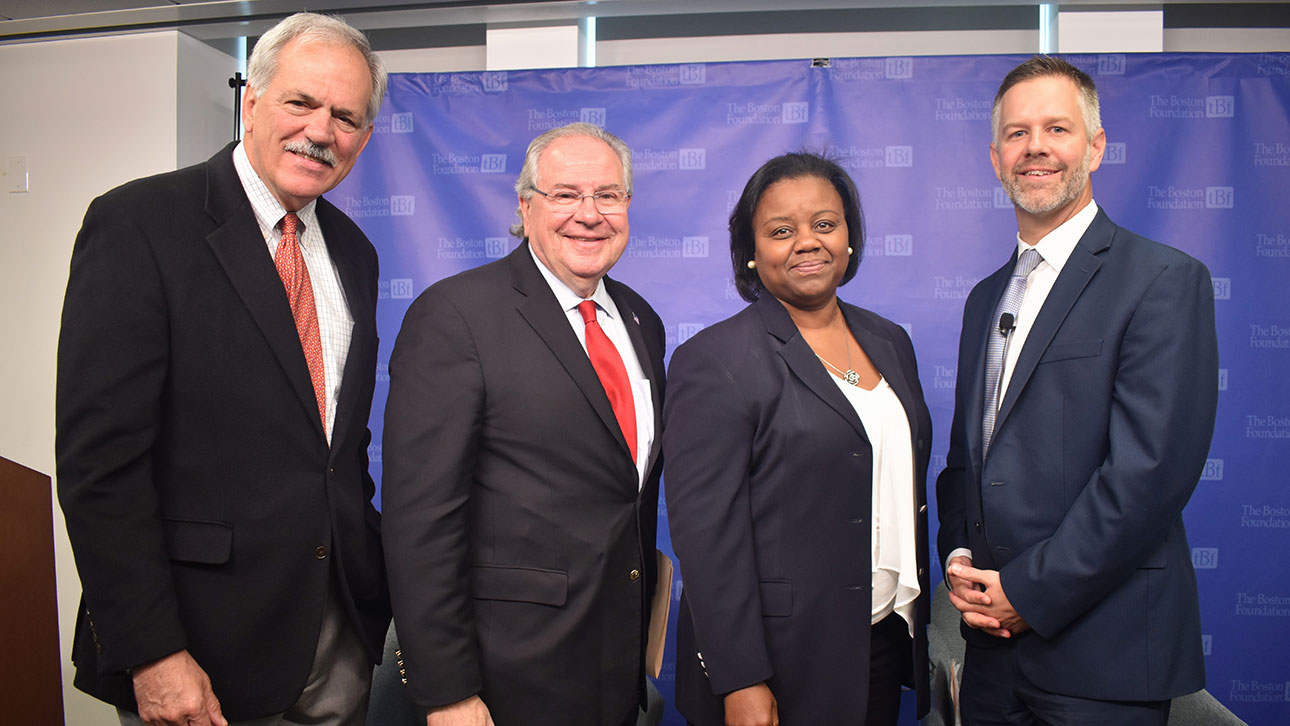Early Childhood Policy
The Road Ahead
TBF News Summer 2018
Babies, toddlers and preschoolers were the focus of attention in the Boston Foundation’s Edgerly Center on June 8, even though not one of them was in the crowded room. The occasion was a roundtable titled Early Childhood Policy in Massachusetts: The Road Ahead, which brought together leaders and advocates to discuss the status and future of support for the pre-K population and the educational and caregiving workforce that serves it.
Over the last year, the Boston Foundation has been deepening its focus on the critical pre-natal to age 5 early childhood years to improve children's readiness for success in school and life. The Foundation has held several major forums to raise public awareness of the opportunities and challenges in the early ed space—and is also holding a series of Early Childhood Research Roundtables to discuss specific topics in depth.
The June event was the second of several roundtables that will focus on issues related to the early education and care workforce.
Speaker of the Massachusetts House of Representatives Robert DeLeo and Commissioner of the Massachusetts Department of Early Education and Care Thomas Weber discussed the topic from their respective, mostly aligned, points of view. Their conversation was moderated by Marie St. Fleur, former elected and appointed official in state and city government and former President and CEO of the Bessie Tartt Wilson Initiative for Children. She helped steer the discussion toward recent accomplishments, achievement gap challenges, business community engagement, workforce development and future plans.
Speaker DeLeo recalled coming to understand the importance of early childhood education not just to the individuals who receive it, but to the community they live in. “I was impressed by a report about the later success and higher educational attainment of people who’d had good early education, and the lower incarceration rates among them.” Clearly, increasing access to that would be better for kids (and the adults they’d become) and better for Massachusetts. When he witnessed the business community take interest as well, and realized the magnitude of its impact on the overall state economy, he became a “true believer.” And, he said, “That’s not just because I have a two-and-a-half year-old granddaughter!” Although he did decidedly light up when talking about her.
Weber reiterated that the most significant developmental period in a person’s life was age 0 to 5, a finding informed by several studies. “Given the research, we in this room all ask why aren’t we further along?” He offered his answer: “A good idea isn’t sufficient. You have to have a plan—one that’s clear, operable and gives the legislature [or private investors] confidence that money is going to the right areas.” For example, he explained, we can agree that universal pre-K is good and we’re all behind it, but our particular environment is not ready for a system-wide implementation.
For one thing, about three-quarters of our early childhood education providers are private enterprises. Of the 100,000 early educators licensed in Massachusetts, one-third have limited English proficiency. The workers are mostly women often working two jobs to make ends meet. New standards for organizations and credentialing opportunities for individuals have to dovetail with the capacity of those organizations and individuals as they continue to nurture young children. Weber said, “We can’t shoehorn an early childhood education plan into the current K-12 system. Instead we need to embrace the existing strengths of our complicated early ed system, then get the right supports in place to build a foundation for quality accessible to all.”
“If we get this right,” St. Fleur noted, “we solve so many issues in the future. It’s a two-generation solution, as we close the opportunity gap for children and for so many women left out of economic advancement by the current state of early childhood work.”
Related Forums
Building a Foundation of Success
Boston's Progress Toward Universal Pre-K
November 15, 2017

